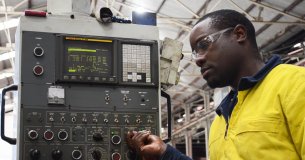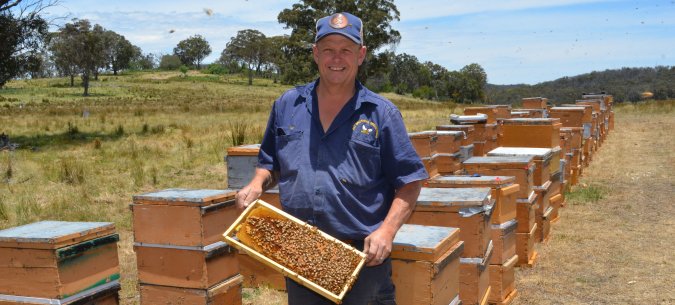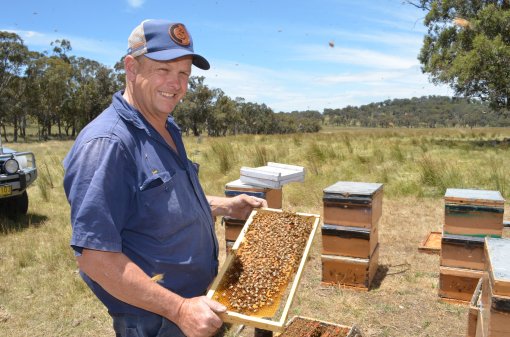-
Featured Items
-
Featured Resources
 Funding & Grants
Don't miss out on funding opportunities. Stay informed with our up to date online listings and email notifications.
Read More
Funding & Grants
Don't miss out on funding opportunities. Stay informed with our up to date online listings and email notifications.
Read More
 Skilled Migration
Our services help both applicants and employers, to learn more, develop plans, submit applications, and settle in.
Read More
Skilled Migration
Our services help both applicants and employers, to learn more, develop plans, submit applications, and settle in.
Read More
 Research and Analysis
Good research and analysis makes the case. How can our resources and services help your project or application?
Read More
Research and Analysis
Good research and analysis makes the case. How can our resources and services help your project or application?
Read More
 Information & Data Resources
With resources like REMPLAN, Regional Knowledge Base, and decades of data, discover how we can help your project.
Read More
Information & Data Resources
With resources like REMPLAN, Regional Knowledge Base, and decades of data, discover how we can help your project.
Read More
-
Stay InformedSubscribe to one or more of our regular email subscriptions, to be kept up to date on news and funding opportunities for the region
-
-
Our Region
- Our Region
- Regional Plan
- Regional Data
- Current Regional Issues
- Population Migration Analysis for 2016-21
- Job Vacancies Continue at All-Time High
- National Debt - What it Means for Our Economy?
- The True Value of Home Solar
- The Economic Impacts of Local Government Amalgamations
- State of the Regions Report 2014-15
- Antifragility - A different take on regional economic development
- Biohubs - Collaborative Waste Management
- Attracting New Residents
- Socio-Economic Impacts of the Murray Darling Basin Plan
- Murray Darling Basin Water Recovery
- Growing Businesses
- The Northern Inland Economy
- Geographical Overview
- Major Industry Sections
- Our Services
- Grants and Funding
-
Skilled Migration
- Skilled Migration
- Skilled Employer Sponsored Regional Visa
- Skilled Work Regional Visa (subclass 491)
- Temporary Seasonal Workers
- Designated Area Migration Agreement (DAMA)
- Helpful Information for Visa Holders
- Information for Employers
- Case Studies
- Payment Details
- Advice & Further Information
- Contact Details
- News & Events
-
Our Projects
- Our Projects
- Current Projects
- The Welcome Experience
- Come On Inland
- Wool Works - Wool Training Schools
- Skilled Migration
- Metal Works - Welding and Fabrication Schools
- Stories of Resilience
- Alt Brothers Beekeeping - Glen Innes
- Carelle's Toy Store - Glen Innes
- Greenhill Orchards - Arding
- Gwydir Meats - Warialda
- Kaputar Motors - Narrabri
- Moonbi General Store - Moonbi
- Sandstock - Tingha
- Sherelle Fashions - Tenterfield
- Sleepy Merino - Inverell
- Tenterfield Chamber of Toursim, Industry and Business - Tenterfeild
- The Welders Dog - Armidale
- Walcha Veterinary Supplies - Walcha
- AGCAP - Agribusiness Careers & Professions
- Northern Inland Regional Investment Profile
- Past Projects
- Digital Economy Strategy
- Business Growth Project
- Go Digital
- How to Start an Online Business
- Create Your Website Using Squarespace
- How to Edit Your Squarespace Site - Part 1
- How to Edit Your Squarespace Site Part 2
- Add a Shop to Your Squarespace Site
- Start a Blog and Find out What Customers are Searching
- 14 Tips For a Better Blog Post
- Which Social Media Platforms are Best for Your Business
- How to Use Facebook Effectively For Your Business – Part 1
- How to Use Facebook Effectively For Your Business – Part 2
- Instagram Tips for Business
- Catching Up, More Instagram & Dealing with Haters
- Getting Started with Twitter for Business
- Social Media Scheduling Tools
- How to Start an Etsy Shop – Part 1 – Research
- How to Start an Etsy Shop – Part 2 – Signup
- Online Security for Your Business
- Product Photography and Website Images: Your Guide
- 5 Tips to Improve your Productivity in your Business
- Best Online Business Resources
- How to Improve Your Communication Skills and Win More Clients
- NBN Coordinator
- Putting Power Back in the Regions
- Road Freight Study
- Town Audit Benchmarks
- Food and Wine
- Youth Survey
- Digital TV Switchover Assistance
- Northern Inland Transport Guide
- Live.Train.Work
- Northern Inland Innovation Awards
- Northern Inland Innovation Awards - 2017
- Northern Inland Innovation Awards - 2016
- Northern Inland Innovation Awards - 2015
- Northern Inland Innovation Awards - 2014
- Northern Inland Innovation Awards - 2013
- Northern Inland Innovation Awards - 2012
- Norther Inland Innovation Awards - 2011
- Prime Super Northern Inland Innovation Awards - 2010
- Prime Super Northern Inland Innovation Awards - 2009
- Northern Inland Innovation Awards - 2007
- Northern Lights Project
- NBN Smart Home
- Murray Darling Basin
- Moree Plains Business Workshops
- Namoi Investment Prospectus
- Industrial Land
- Bioenergy and Local Electricity Retailing
- Northern Inland Business Energy Assessment
- Skills for the Future
- Impacts of COVID-19 on Businesses
- Past Projects of NIRDB
- Aboriginal Employment and Enterprise in the Gunnedah Region
- Art as an Industry
- Aviation Survey
- Farm Forestry - Northern Inland Forestry Investment Group
- New England North West Film Strategy
- Northern Inland Excellence in Business Awards
- Food and Wine 2003 - 2008
- Prime Super Northern Inland Innovation Awards 2009
- Regional Business Networking Program
- Regional Leadership Course 2008
- Viticulture Strategy 2002-2003
- About Us
- Contact Us
- Other Resources
- Privacy and Legal
- Search
- Our ProjectsOur Projects
- Current ProjectsCurrent Projects
- Stories of ResilienceStories of Resilience
- Alt Brothers Beekeeping - Glen InnesAlt Brothers…
Stories of Resilience - Alt Brothers Beekeeping
Glen Innes
The impacts of drought and fire on rural producers are clear and readily imagined but not so for beekeepers, with the challenges of honey production being less understood than many rural industries. Drought and then the worst recorded bushfire season in Northern Inland NSW starved honey producers like the Alt Brothers Beekeeping operation, north of Glen Innes, of the floral resources their bees need. It is estimated that fires wiped out well over 50 percent of local floral resources in 2019 and 2020. Drought had already taken a wilting toll. Beekeepers like Tim Alt were not just resilient, they were proactive and responsive, traveling hundreds of kilometres with their hives to better apiary sites, despite the biosecurity risks.
Tim Alt
“My brother and I, my father and my son (he’s a fourth-generation beekeeper), we run a mixed farming business up here in the northern New England region of New South Wales. Beekeeping and grazing sheep and cattle, wool production. We run approximately 950 hives of bees. We also run about 2,500 head of sheep and 400 to 500 head of cattle. It’s God’s country up here but we have done it very tough over the last two or three years,” he said.
Taking Care of the Bees is Number One
Despite the bushfires that ravaged the region, Mr Alt believes the drought impacted his business more. “We had to cart the bees a long, long way away. We had to go as far as Goomeri and Gympie up in Queensland, down as far as Clarence town, down around Maitland. It was very hard sourcing honey. Probably the hardest part of the drought is now because the trees are still recovering.”
“In honey production, you’ve got to be able to find honey. In the drought, honey stock dried up around this area. So, we had to take them further and further away. It’s not just about the honey, you’ve got to keep the bees healthy as well. You’ve got to find trees where bees are going to breed and get good quality pollens. You can’t just focus on the honey, you’ve got take care of the bees; that’s the big number one. Chasing floral resources was a great challenge for us because you’ve got other beekeepers around the place doing the same thing. We’ve got a great apiarist community in this region, everyone knows each other and we all get along. Back in the drought it was very hard, we were traveling long distances, being away from home. Then, we had bushfires that came close to our bees. A few of my friends lost a lot of hives. We were lucky and we didn’t but it was a close call at times. I had to get up in the middle of the night and put breaks around our bees to stop fires from getting to them.”
“Bushfire smoke was affecting the bees. It doesn’t actually kill the bees but we use smoke to calm the bees when we’re out doing anything with them. So, with the bushfire smoke, on heavy days the bees would sort of shut up shop. It slowed production up a fair bit during the fires.”
“Your costs were going up all the time. You’re going two to three times as far to get honey, then you’ve got to bring honey back to the shed here to extract it. So, your running costs doubled.”
“One of the biggest challenges we’re facing in the beekeeping industry is the varroa mite. We were the only country in the world that didn’t have it. I’d like to hope that the authorities and the people working on it are going to get on top of it because we have got some of the best, clean, green honey in the world.”
It was not only the welfare of their bees that added costs, stress and work for the Alt family.
“The livestock did it tough. We had dams drying up, stock getting bogged in dams and silt. We were feeding our stock two to three times a week and trying to keep the water up to them. Buying B-double loads of feed out of Victoria to try and keep our stock alive.”
Finding the Strength to Keep Going
After surviving such tough years, Mr. Alt reflected on why he and his family are still in their business.
"You've got to be resilient,
you've got to turn around and say yesterday's history,
lets focus on the future, move on
and keep the dream alive."
“The big word is resilience. You’ve got to be resilient. You’ve got to be able to diversify and look at the big picture. It’s no good crawling up into a ball and saying it’s too hard. You’ve just got to get up in the morning, grit your teeth and say we’re going to do this, we’re going to get through it because every day we went without rain was one day closer to rain. Now we’ve had a change of season and it’s beautiful and lush up here, the bees are doing well, the stock is doing well. That will change; we will go back into drought and we’ve got to be prepared for it. You’ve got to take the good times with the bad. A lot of city folk don’t realise how hard it is on the land to do what we do but we get up every day, face the challenges, take the bull by the horns and do our job the best we can.”
"You've just got to get up in the morning,
grit your teeth and say we're going to do this,
we're going to get through it."
“The good times are worth it. You wake up and you smell the fresh air and go let’s have a crack at her again today.”
“What keeps us going is the drive, the love and passion for what we do. There’s nothing better than going out to a load of bees, lifting the lid and having a look at the honeycomb on the top and seeing them do well. Then, having a look in the bottom of the hive and seeing bees happy. It’s like going out and seeing your cattle fat and shiny and happy. There’s nothing better. It’s a great lifestyle and you’ve got to be resilient; you’ve got to turn around say yesterday’s history, let’s focus on the future, move on and keep the dream alive.”
Watch Tim's Full Story
Related Pages
- Stories of Resilience
- Alt Brothers Beekeeping - Glen Innes
- Carelle's Toy Store - Glen Innes
- Greenhill Orchards - Arding
- Gwydir Meats - Warialda
- Kaputar Motors - Narrabri
- Moonbi General Store - Moonbi
- Sandstock - Tingha
- Sherelle Fashions - Tenterfield
- Sleepy Merino - Inverell
- Tenterfield Chamber of Toursim, Industry and Business - Tenterfeild
- The Welders Dog - Armidale
- Walcha Veterinary Supplies - Walcha







 Latest News
Latest News


